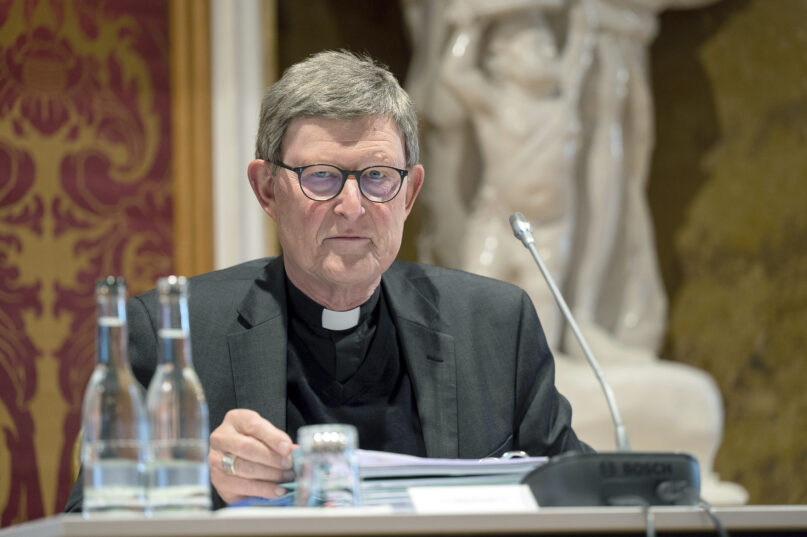VATICAN CITY (RNS) – Pope Francis has accepted a request from German Cardinal Rainer Maria Woelki for a six-month break from his duties as archbishop of the Diocese of Cologne in order to deal with his “grave mistakes” in handling the sexual abuse cases.
A statement released by the Holy See on Friday said there is no indication that Woelki acted unlawfully in dealing with cases of sexual abuse, but it said that the cardinal failed in terms of communication and approach, which contributed to “a crisis of confidence” among Catholics that “has disturbed many believers.”
The Archdiocese of Cologne, the largest and richest diocese in Germany, has been at the center of a crisis in the German church over bishops’ accountability for clerical abuse scandals.
In June, the Vatican commissioned two bishops to investigate Woelki’s response to an abuse scandal that had begun under his predecessor and to get “a comprehensive picture of the complex pastoral situation.”
The apostolic visitation, as such investigations are known, was led by Bishop Johannes van den Hende, the President of the Dutch bishops’ conference, and Cardinal Anders Arborelius of Stockholm.
Francis called Woelki last week to discuss the results of the bishops’ report. At Woelki’s request, the pope granted him a “spiritual break” starting in mid-October through Lent of next year, according to the Vatican statement.
Bishop Rolf Steinhauser Thuburnica will act as substitute until Woelki returns.
In 2018, a study of sexual abuse in the Roman Catholic Church in Germany and commissioned by the German bishops’ conference found that 87 priests had been accused of sexual abuse in the Archdiocese of Cologne.
A second investigation into Cologne’s individual dioceses was completed in 2020, but when Woelki, a conservative among German bishops, refused to publish its report, many Germans questioned the cardinal’s attitude toward prosecuting abuse, and some called for his resignation.
Yet another study, this one conducted at the behest of the archdiocese by the German law firm Gercke und Wollschläger, ended in March 2021. It found that between 1975 and 2018 there were more than 300 alleged victims of abuse, mostly by clergy. The report also found several cases of lack of oversight and mismanagement by Catholic officials in the archdiocese but did not find evidence of misconduct by Woelki.
In today’s statement, the Vatican “refuted” accusations suggesting that Woelki had manipulated the result of the diocesan report in order to cover up abuse cases and shore up his own accountability.
RELATED: Pope Francis reins in Catholic movements after flood of abuse cases
At a press conference in March, Woelki refused to hand in his resignation while admitting to a culture of “systemic coverup” in the archdiocese. “I acted in a respectful and legally sound way,” the cardinal said, before adding, “It’s not just about doing the right thing, it’s about doing everything humanly possible, and I didn’t do that.”
The German Catholic church is undergoing a moment of deep division as lay Catholics demand greater accountability in the approach to preventing abuse. It is also undergoing a process of transformation called the Synodal Path, in which Catholic bishops and laypeople are discussing the challenges facing the church in the country.
Launched in 2019, the process addresses priestly life, sexuality and morality, power structures in the church and the role of women. The Synodal Path has garnered both praise and criticism for its progressive proposals for LGBTQ inclusion and female empowerment.
Woelki has been skeptical about the process, expressing his fears that it might lead to “a schism” with Rome and the creation of a “German National Church.”
Sexual abuse has been a driving force in the Synodal Path discussions. Investigations into the Diocese of Hildesheim found credible allegations that the late Bishop Heinrich Maria Janssen, praised in the country for his charitable work, took part in a pedophile ring and sexually abused minors.
Woelki’s missteps have deepened the rift between Catholic faithful and the local hierarchy.
RELATED: Pope Francis wants every Catholic to have a say. Why haven’t US Catholics heard about it?





